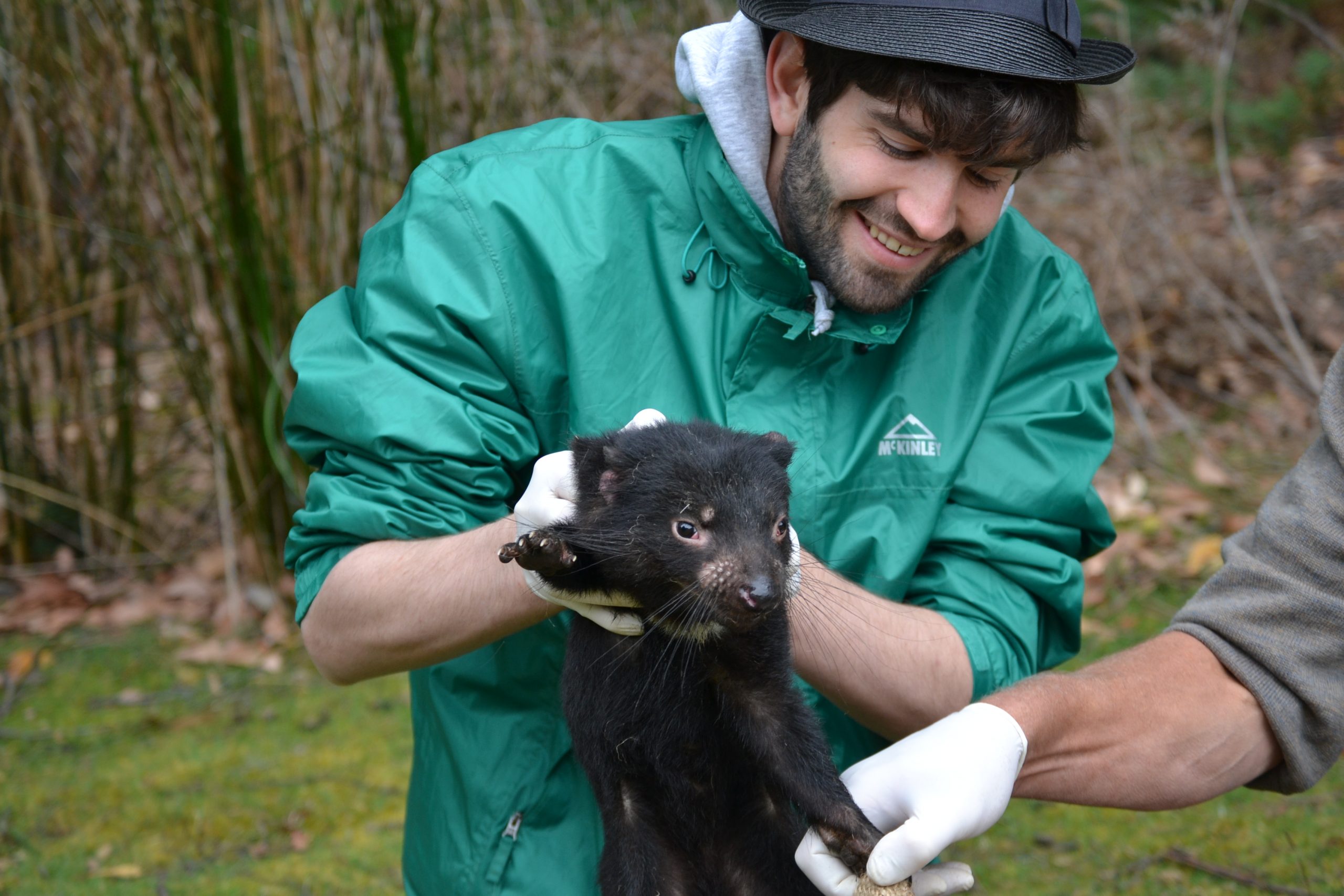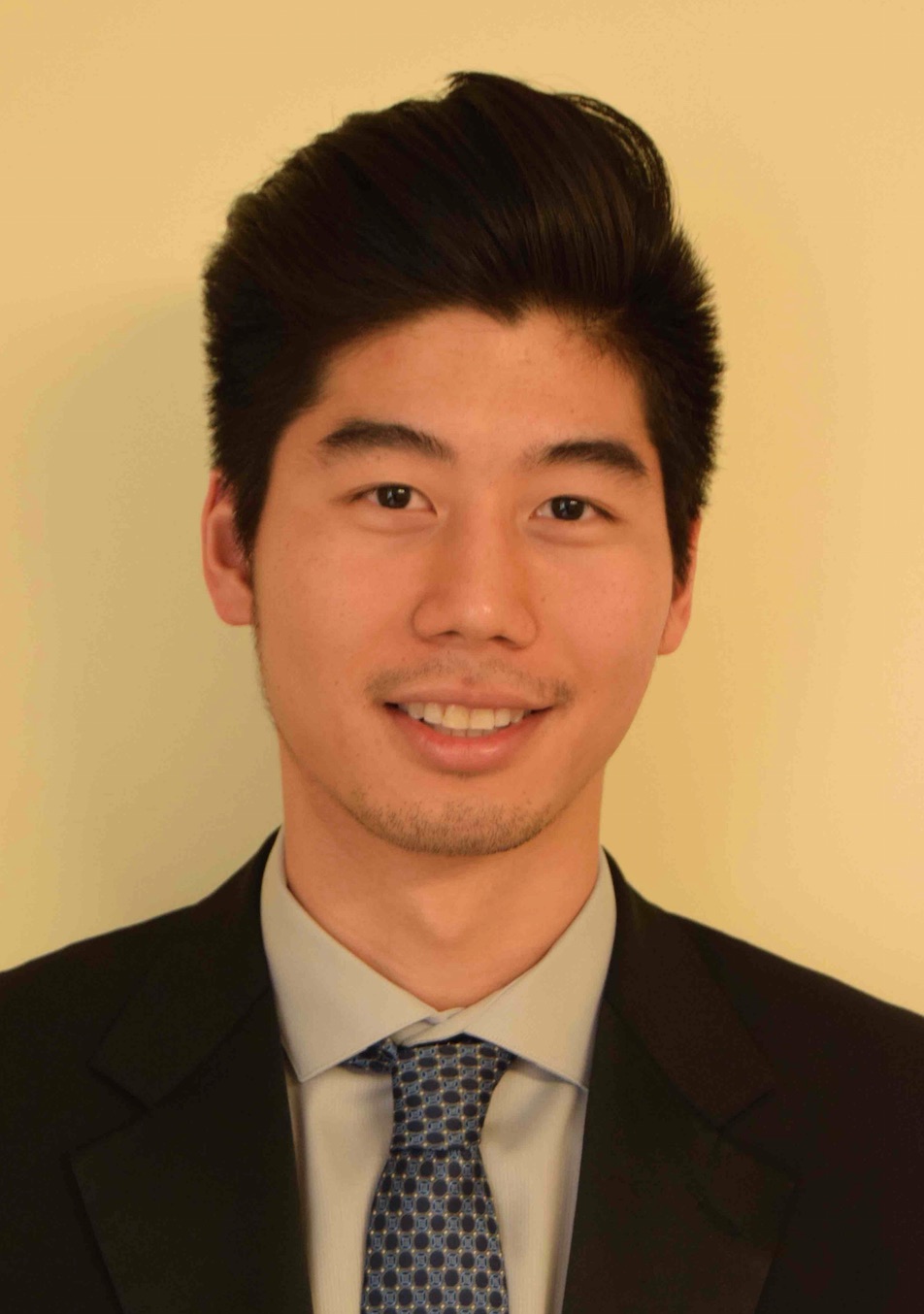
Maximilian Stammnitz on how he came to study Tasmanian devils.
One of Maximilian Stammnitz’s best memories at Cambridge has been his encounter with Tasmanian devils on a field trip to Tasmania in 2016. “There is nothing more exciting than examining actual devils in the wild – they are truly majestic animals!” he says. A major paper, on which he is first author, is published today on his research.
Stammnitz [2016] is doing his PhD in the University of Cambridge’s Department of Veterinary Medicine. Originally from “Germany's sunniest spot: Heidelberg”, he came to Cambridge to join the Computational Biology MPhil programme at the Department of Applied Mathematics and Theoretical Physics in 2014.
“This course provides fascinating opportunities to study biology through a big data lens, and to learn about vastly emerging genomics technologies from experts in the field,” he says. “The DNA-level expertise and collaboration at Cambridge surrounding topics of genetics, evolution, medicine and computational data analysis is breath-taking.”
It was a seminar by Elizabeth Murchison on transmissible cancers that caught his imagination, however, and he subsequently joined her group at Veterinary Medicine for a summer internship, and then as a PhD student and Gates Cambridge Scholar. The ultimate aim of his work is to save the largest carnivorous marsupial on the planet, but by studying the fundamental processes of cancer development in Tasmanian devils, his work could help us understand better how cancer develops in humans.
“I spend most of my working days behind a computer screen, processing and analysing large volumes of DNA and RNA sequencing data from Tasmanian devil tumour biopsies,” he says. “Occasionally, I also do molecular biology experiments in the 'wet lab', to validate our computational results or to establish testing protocols for the devils.”
It isn’t all about work, though. “Over the past year, I have been the captain of our university's Blues men's volleyball team and co-founded PuntSeq, a citizen science project aiming at cost-effective pathogen surveillance of our house river Cam's water,” he says.
“My biggest challenge of living here is to balance truly focused work life and quiet time with the many inspiring distractions that wait behind the corners of Cambridge's old walls. It’s a luxury problem to have as a PhD student.”
Maximilian says he is very indebted to the Gates Cambridge Trust for funding his research. "The community of scholars in our programme is unique and features people who have their hearts in the right place," he says. "I’d genuinely wish to attend more of the many amazing social and learning-related activities happening all year round, such as the Learning for Purpose events which are organised and led by some students' immense voluntary commitment."
The Gates Cambridge connection has also prompted further interesting work. Maximilian is curently working with fellow Scholar Joseph Wu [2016] from the History and Philosophy of Science Department on a collaborative opinion article that integrates fundamental ethics and policy questions related to cancer drug trials in wild animal populations.
You can follow Maximilian Stammnitz on Twitter @DevilsAdvoMax

Maximilian Stammnitz
- Alumni
- Germany
- 2016 PhD Veterinary Medicine
- Pembroke College
As a PhD student in the Transmissible Cancer Group of Dr. Elizabeth Murchison (2015 - 2020), I have worked on Transmissible Tasmanian Devil Facial Tumour Disease (DFTD) genetics through computational analyses of large-scale DNA and RNA sequencing data. I am now an EMBO fellow at the Centre for Genomic Regulation, Barcelona.

Joseph Wu
- Alumni
- United States
- 2016 PhD History + Philosophy of Sci
- King's College
I grew up in southern California and attended Duke for my undergraduate studies. I started out in biology, researching the genetic regulation of skin cancer and spending my summers with kids affected by cancer. I transitioned to philosophy out of a desire to explore, not just the functioning of disease, but also the nature of our attempts to mitigate it. My PhD examined one such attempt, the early detection of cancer though screening, an issue that cuts across public health ethics, political philosophy, and philosophy of medicine. We can ask of screening: what are the benefits and harms, and how can we distribute them justly throughout the population? What sorts of ethical obligations shape how we communicate about cancer? What are the ultimate aims and limits of medicine? Answering these questions is central to developing ethically sound and effective health policies. Apart from research, I competed for the Cambridge University water polo team, and co-captained the team in 2016-2017. After Cambridge, I attended medical school at Brown, and am currently a Psychiatry resident at the Brigham and Women's Hospital / Harvard Medical School program.
Previous Education
Duke University
University of Cambridge












